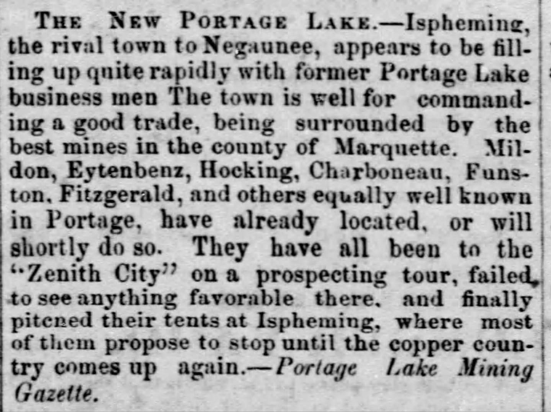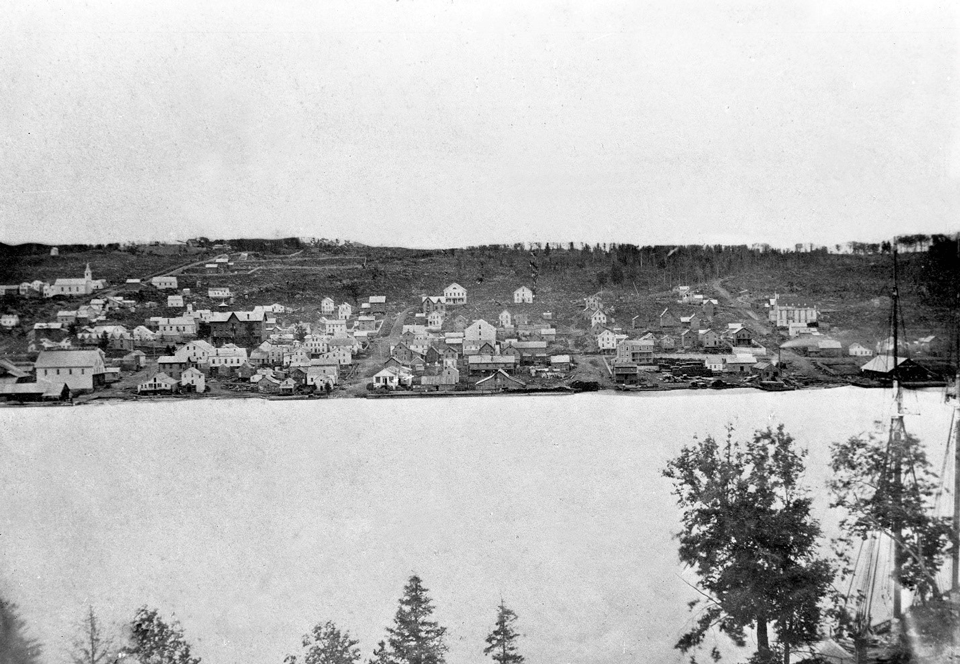
1845 U.S. GLO Survey Maps/Author’s edits The Jeffrey brothers’ father, Asa Jeffrey Sr., was a seaman and his sons were experienced as sailors. They arrived in Ontonagon from New York on Great Lakes vessels between the late 1840s and middle of the 1850s. Theirs was a family migration, including the brothers’ wives, children, and in-laws. Asa and Josiah Jeffrey voted in Ontonagon Township’s first election of 1849, when Asa Jeffrey himself was elected to township office as “Overseer of the Poor.” The election of a man of African descent at this time was very unusual, and may have reflected the family’s influence as landholders: together, Asa, Josiah, and Horace owned over 400 acres by the middle of the 1850s. 
Portage Lake Mining Gazette, 1870 In spite of this substantial investment, by 1860 most of the Jeffrey family had left Ontonagon. Charles, Horace and Josiah had moved west to Minnesota. Richard, a sailor, initially remained with his family but would soon follow his brothers west. From their new homes in Minnesota, Josiah, Horace, and Charles Jeffrey enlisted to serve in the U.S. Civil War. Horace died due to injuries sustained during the Battle of Nashville in 1865, leaving a wife and son who fought for and obtained his soldiers’ pension. A Migrant Story - Anna W. C. Jones
Keweenaw NHP Archives KHVM--Haeussler--[Houghton from Ripley]--ca. 1865 |
Last updated: June 19, 2022
